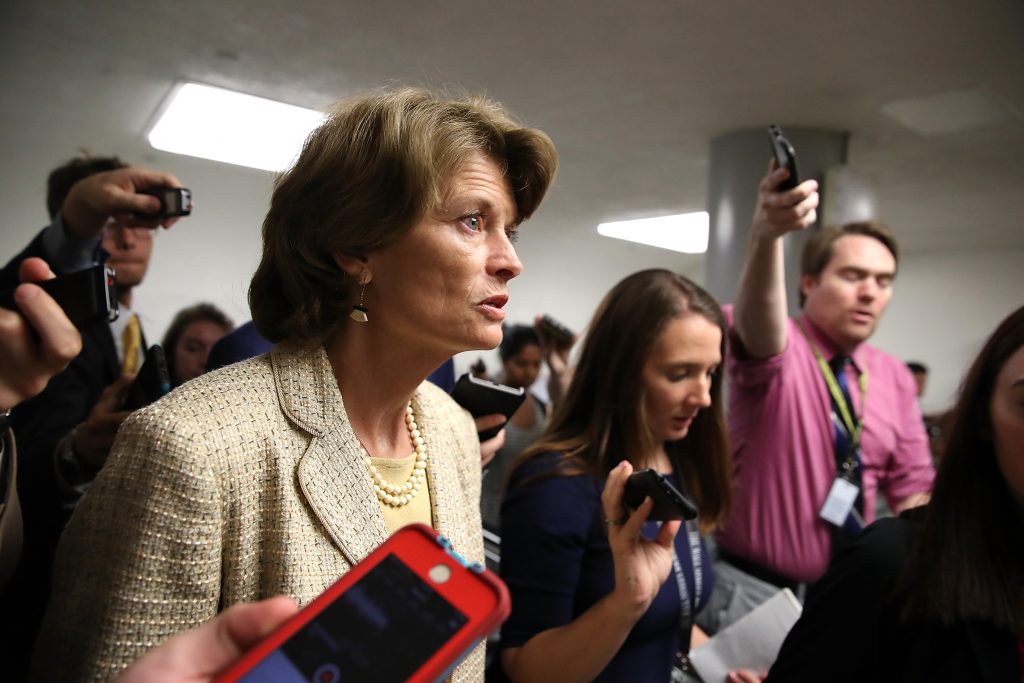

This is the web version of VoxCare, a daily newsletter from Vox on the latest twists and turns in America’s health care debate. Like what you’re reading? Sign up to get VoxCare in your inbox here.
The Senate continued its Obamacare repeal debate Wednesday. It’s actually still happening, and you can stream it on C-SPAN. Here are the three main things that happened today:
- A bill to repeal the Affordable Care Act without replacement failed with a 45-55 vote. This was the Obamacare Repeal Reconciliation Act (ORRA), which would have repealed Obamacare with a two-year delay. Seven Republican senators voted against the measure: Dean Heller (NV), Shelley Moore Capito (WV), Susan Collins (ME), John McCain (AZ), Rob Portman (OH), and Lisa Murkowski. This was not a surprise; we knew going in there wouldn’t be sufficient votes to move this bill forward. If anything, this was the Senate Republican leadership showing that fact so they can move on to a different plan (presumably the “skinny repeal” bill you’ve read a lot about over the past few days).
- Sen. Jeff Merkley (D-OR) has 120 amendments ready to offer — meant to force Republican senators to take wildly unpopular votes. Vox’s Jeff Stein has the full list. It includes amendments to prevent the Republican health bill’s Medicaid cuts from hurting children with cancer or hurting pregnant women. Democrats can’t stop the Republican repeal push, but the goal of amendments like these is to gum up and slow down the process. As Jeff writes, “These amendments call for the bill to be sent back to the Finance Committee, which would then be tasked with aligning the amendment with the new bill.”
- A key health insurance lobby came out against individual mandate repeal. The Blue Cross Blue Shield Association released a statement late Wednesday decrying the idea of “skinny repeal,” where the Senate would repeal the requirement to carry health coverage but leave most of the rest of Obamacare intact. “It is critical that any legislation include strong incentives for people to obtain health insurance and keep it year-round,” the statement says. “A system that allows people to purchase coverage only when they need it drives up costs for everyone.” Read the full thing here.
-
What happens next: Debate will continue into the late evening, although we’re not exactly sure how late. We’ve heard there may be one more vote, around 7 tonight, although we’re not sure what it might be on. In any case, it doesn’t appear to be one that will alter the debate very much.
Other than that, don’t expect much action beyond some floor speeches. There are no other votes scheduled for tonight, although a last-minute change is always possible. Thursday is when things will really pick up, with the start of “vote-a-rama” — a period when senators vote on lots and lots of amendments.
Chart of the Day
/cdn.vox-cdn.com/uploads/chorus_asset/file/8932659/uninsured.160342.jpg)
Minority populations have seen the biggest uninsured declines under the ACA. Much attention has been given to Trump voters in rural, predominantly white areas of the country that benefited greatly from the Affordable Care Act. Less noticed are the effects the health law has had on urban areas, where health coverage among minority populations has soared. I wrote about it in my latest feature story for Vox.
Kliff’s Notes
Your daily top health care reads, with research help from Caitlin Davis
Today’s top news
- “GOP leader: Senate could pass scaled-down ObamaCare repeal”: “Senate Majority Whip John Cornyn (R-Texas) indicated Wednesday that is it likely the Senate will try to pass a scaled-down ObamaCare repeal bill as a way to move to negotiations with the House. The No. 2 Senate Republican told reporters Wednesday that a scaled-down, ‘skinny’ bill ‘seems to have a lot of benefits, getting us to conference.’” —Peter Sullivan, the Hill
- “Conservative groups “key vote” straight ACA repeal”: “Leading conservative groups, including Americans for Prosperity and FreedomWorks, are making today’s Senate vote on a straight repeal of the Affordable Care Act a ‘key vote’ — meaning they’ll use it in the 2018 election to evaluate senators’ voting records.” —David Nather, Axios
- “Trey Gowdy demands opioid strategy from Office of National Drug Control Policy”:“Rep. Trey Gowdy, R-S.C., said Wednesday that the Office of National Drug Control Policy has failed to produce a strategy or a budget plan to address the growing opioid epidemic across the United States.” —Matthew Trunko, Washington Examiner
Analysis and longer reads
- “‘Skinny Repeal’ of ACA Likely to Leave Everyone Wanting More”: “The skinny repeal would fall far short of the goal of complete elimination of the ACA, but it would give Republicans the ability to claim at least a small victory. However, according to the Committee for a Responsible Federal Budget, it would also result in at least 15 million fewer Americans with insurance within a year, and 20 percent increases in health insurance premiums, while saving the federal government a relatively modest $225 billion over 10 years.” —Rob Garver, Fiscal Times
- “Universal Health Coverage? Why?”: “Good health, like education, expands the workforce and makes it more productive. One reason other countries have better health than the United States at substantially less cost is because they cover everyone starting at birth.” —Walter McClure, Alain Enthoven, and Tim McDonald, Health Affairs
- “Trump says it’s too expensive to care for transgender service members. Here’s the truth”: “President Trump on Wednesday announced that the military would no longer allow transgender people to serve, citing both ‘the tremendous medical costs and disruption’ that would be caused by their integration into U.S. forces. But at least two studies in recent years have found that the cost of medical care for transgender service members would be minimal.” —Andrew Joseph, STAT
Join the conversation
Are you an Obamacare enrollee interested in what happens next? Join our Facebook community for conversation and updates.
[“Source-vox”]




